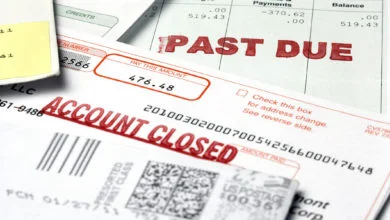10 Mistakes To Avoid When Booking Your Next Flight
Most people intuitively associate vacation and travel with huge expenses. But it doesn’t have to be that way. With the right kind of planning plus a few clever tricks and tips, it’s possible to enjoy travel without ripping a hole in the budget.
Face it: The most expensive and challenging part of a family trip is plane tickets. Even in the face of sky-high prices, getting over this hurdle with your budget intact and a flight schedule you and your family can live with is still possible. From booking too early to not considering all options, here are 10 mistakes to avoid when booking your next flight.
NO. 1: BOOKING THROUGH THIRD-PARTY TRAVEL SITES
Use travel sites such as Kayak, Expedia, CheapOair and Hopper to search for flights, but be cautious about purchasing through them. I made a costly mistake when I bought a “cheap” flight on Expedia. The first leg was delayed, causing me to miss my connection. United Airlines directed passengers in my situation to customer service for rebooking, but because I hadn’t booked directly with United, I would need to contact Expedia. I had to buy an expensive ticket immediately and handle the Expedia issue later.
What a nightmare. I never did get a refund. But I learned a valuable lesson: Use search engines for their tools and information, but book directly with the airline.
NO. 2: NOT BEING FLEXIBLE WITH TRAVEL DATES
Flexible travel dates lead to cheaper plane tickets. Use sites such as Google Flights, Hopper and Skyscanner to explore different dates and destinations. Changing your departure or return dates by a day or two can significantly affect price. These platforms provide tools to help you act as your own travel agent, allowing you to find the best deals.
NO. 3: BUYING TICKETS ON THE WRONG DAYS
This is a little tricky: Buying plane tickets on weekends when demand is higher will likely cost you slightly more compared to booking during the week. According to Google Flights, tickets were found to be 1.9% cheaper when booked on Tuesday, Wednesday or Thursday compared to the weekend. The study also concluded that flying during the week was approximately 12% cheaper than the weekend.
NO. 4: IGNORING RED-EYE FLIGHTS
Red-eye flights, which depart late at night and arrive early in the morning, are usually cheaper than regular flights. Red-eye flights often offer the benefit of fewer crowds during TSA screenings, providing a smoother and faster airport experience.
NO. 5: CROSSING A LA CARTE AIRLINES OFF THE LIST
Airlines such as Frontier and Spirit are a la carte carriers, charging separate fees for tickets, seats, carry-on bags and checked bags. It can be frustrating, but don’t dismiss them too quickly. Consider the total cost of the flight, including all items, and gradually reduce it. Choose the cheapest seat and pack everything in a single personal item to avoid fees. Learn the airline’s rules and meet their requirements to save significantly compared with other options.
NO. 6: IGNORING NEARBY AIRPORTS
To land more affordable plane tickets, consider expanding your search to include nearby airports, particularly if your departure or destination city is in proximity to major connecting hubs. Major airports often offer lower-priced tickets than smaller ones. Just make sure you calculate transportation and accommodation expenses to assess whether the savings outweigh the additional travel time.
NO. 7: FORGETTING TO TAKE ADVANTAGE OF CREDIT CARD REWARDS
Frequent travelers are well-acquainted with credit card programs that offer points and miles accumulation through their journeys. Travel credit cards such as Chase Sapphire Preferred and Capital One Venture provide opportunities to earn airline points and miles on travel and everyday purchases, too. It’s worth consulting your credit card provider to explore ways to maximize rewards and save on a range of travel expenses, including plane tickets, hotels, car rentals and more.
NO. 8: NOT SETTING UP PRICE ALERTS
Another way to discover cost-effective plane tickets is to use the price alert features offered by travel sites such as Hopper, Kayak and Google Flights, especially if your travel plans are flexible. With a price alert, you’ll receive text or email notifications whenever there’s a great deal available. This approach is particularly beneficial when you are open to booking last-minute tickets, as airlines are known to reduce prices to fill remaining seats on upcoming flights.
NO. 9: BOOKING TOO EARLY
Don’t follow the outdated advice of buying plane tickets as early as possible. Booking too far in advance can lead to higher costs. Airlines often release discounted fares later, so waiting until around 76 days before departure is generally the sweet spot to secure better deals, according to a study by CheapAir.
NO. 10: OVERLOOKING ONE-WAY TICKETS
While opting for a round-trip ticket is generally more affordable and easier to deal with, there are instances where booking separate one-way flights can turn up unexpected savings — especially if you’re open to flying with different airlines. This strategy tends to be most effective when you’re flexible with your choice of airlines for the arrival and departure legs of your travels.




